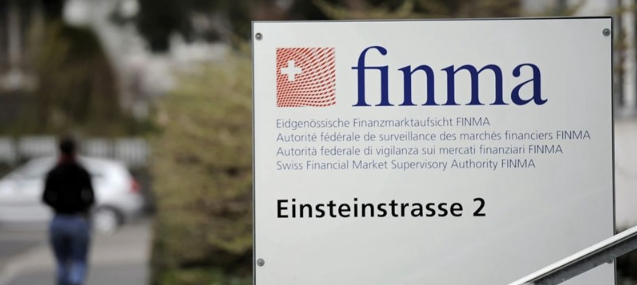The foreign exchange (forex) market is a global decentralized market for the trading of currencies. Forex trading has become increasingly popular in recent years, with millions of traders worldwide participating in this market. However, forex trading is a highly regulated industry, with regulatory bodies in various countries overseeing the activities of brokers and traders. In this essay, we will examine the regulatory guides provided by two of these regulatory bodies – the National Futures Association (NFA) in the United States and the Swiss Financial Market Supervisory Authority (FINMA) in Switzerland – and how they impact forex trading.
Understanding of NFA Regulation

The NFA is a self-regulatory organization (SRO) that regulates the futures and derivatives markets in the United States. The NFA is responsible for overseeing the activities of forex brokers and traders, as well as enforcing compliance with various regulations and guidelines. The NFA provides a regulatory guide for forex traders, which outlines the rules and regulations that must be followed when engaging in forex trading.
How does the NFA regulate a forex broker?
One of the key regulations outlined in the NFA’s regulatory guide is the requirement for forex brokers to be registered with the NFA. This registration process involves a thorough background check of the broker, including their financial history, business practices, and compliance with NFA regulations. Registered forex brokers are required to adhere to a strict code of conduct, which includes guidelines on advertising, record keeping, and customer protection.
Another important regulation outlined in the NFA’s regulatory guide is the requirement for forex brokers to maintain a minimum amount of capital. This capital requirement is designed to ensure that brokers have sufficient funds to cover any potential losses incurred by their clients. The NFA also requires forex brokers to segregate their clients’ funds from their own operating funds, which provides an extra layer of protection for traders.
The NFA’s regulatory guide also outlines the rules and regulations that must be followed by forex traders. These include guidelines on margin requirements, leverage, and risk management. Forex traders are required to maintain a minimum amount of margin in their trading accounts, which serves as collateral for their trades. The NFA also limits the amount of leverage that can be used by forex traders, which helps to prevent excessive risk-taking.
How to check a broker is NFA-regulated or not?
Generally speaking, NFA-regulated broker profile will be found at the BASIC page of NFA website. Try to find it and check if the broker profile published on NFA website will match the info from the broker website.
The detailed steps are as follow:
1. Find the licensed/ID no.(preferred) or name of the forex broker, which you can get from the broker’s website;
2. Enter the NFA ID or broker’s name into the search bar on https://www.nfa.futures.org/basicnet/;
3. And you’ll get the broker’s profile on NFA website. At this time you will click the ‘Activity Status’ and check if the broker get Yes for ‘Firm is engaged in retail off-exchange foreign currency futures and/or options’ and Yes for ‘Firm is soliciting customers’ ;
4. If all the above steps have been done, don‘t forget to check the most important information: check if the firm details published on NFA website matches the ones you’ll go to trade with, especially the website and email etc.
If no, please keep away the broker because its probably an unauthorized firm and your money will fall in danger.
Understanding of FINMA Regulation
The FINMA is the regulatory body responsible for overseeing the financial markets in Switzerland. The FINMA regulates a wide range of financial institutions, including banks, insurance companies, and securities dealers. The FINMA also regulates forex brokers and traders, with a focus on ensuring that the financial markets in Switzerland are fair, transparent, and free from fraud and manipulation.

One of the key regulations outlined in the FINMA’s regulatory guide is the requirement for forex brokers to be licensed by the FINMA. To obtain a license, forex brokers must meet strict requirements related to their financial stability, business practices, and compliance with FINMA regulations. The FINMA also requires forex brokers to maintain adequate capital reserves, which helps to protect traders from losses incurred by the broker.
The FINMA’s regulatory guide also outlines the rules and regulations that must be followed by forex traders. These include guidelines on risk management, leverage, and margin requirements. Forex traders are required to maintain a minimum amount of margin in their trading accounts, which serves as collateral for their trades. The FINMA also limits the amount of leverage that can be used by forex traders, which helps to prevent excessive risk-taking.
How to check a broker is FINMA-regulated or not?
Generally speaking, FINMA-regulated broker profile will be found at the Licensed Institutions and Persons Page of FINMA. Check if the broker profile published on FINMA matches the info from the broker website.
The detailed steps are as below:
1. Find the name of the forex broker, which you can get from the broker’s website;
2. Enter the name into the search bar and choose ‘Category’ as ‘Banks and securities firms’ on
https://www.finma.ch/en/finma-public/authorised-institutions-individuals-and-products/ ;
3. And you’ll get the broker’s information on FINMA website. At this time you will check if the broker be authorised as bank; If no, please keep away the broker because it’s unauthorized to provide forex trading service.
If no, please keep away the broker because its probably an unauthorized firm and your money will fall in danger.
In conclusion, forex trading is a highly regulated industry, with regulatory bodies in various countries overseeing the activities of brokers and traders. The NFA and FINMA are two of these regulatory bodies, and their regulatory guides provide important guidelines and regulations for forex traders. By following these guidelines and regulations, forex traders can ensure that they are operating in a fair, transparent, and compliant manner. This not only protects traders from potential losses but also helps to maintain the integrity of the forex market as a whole.
